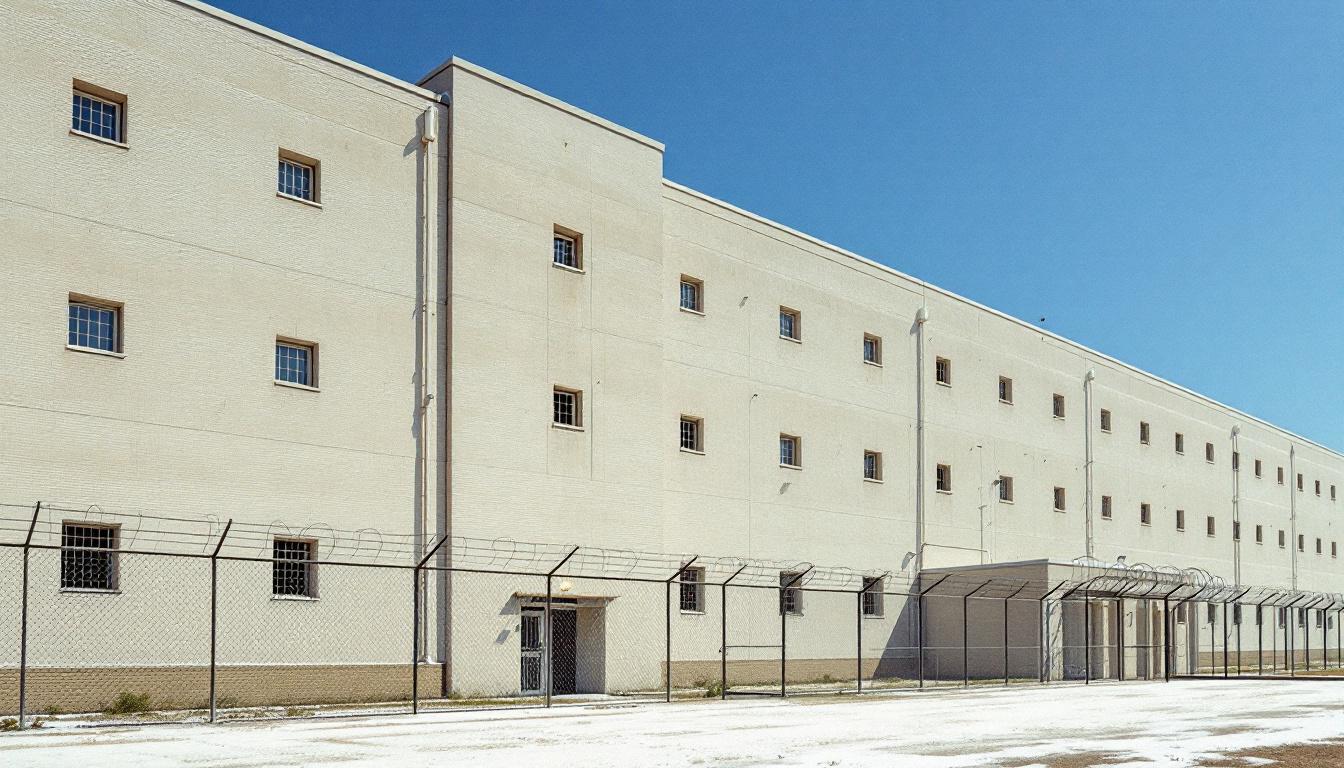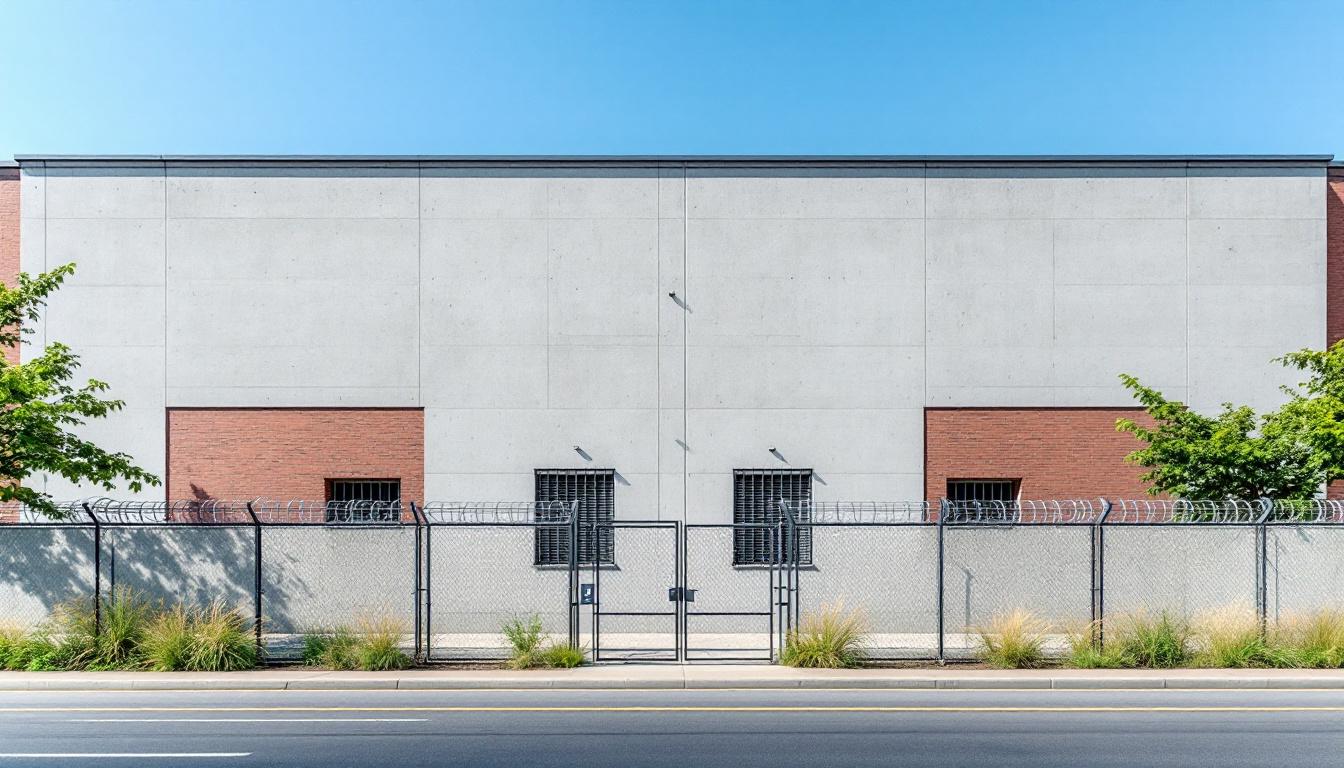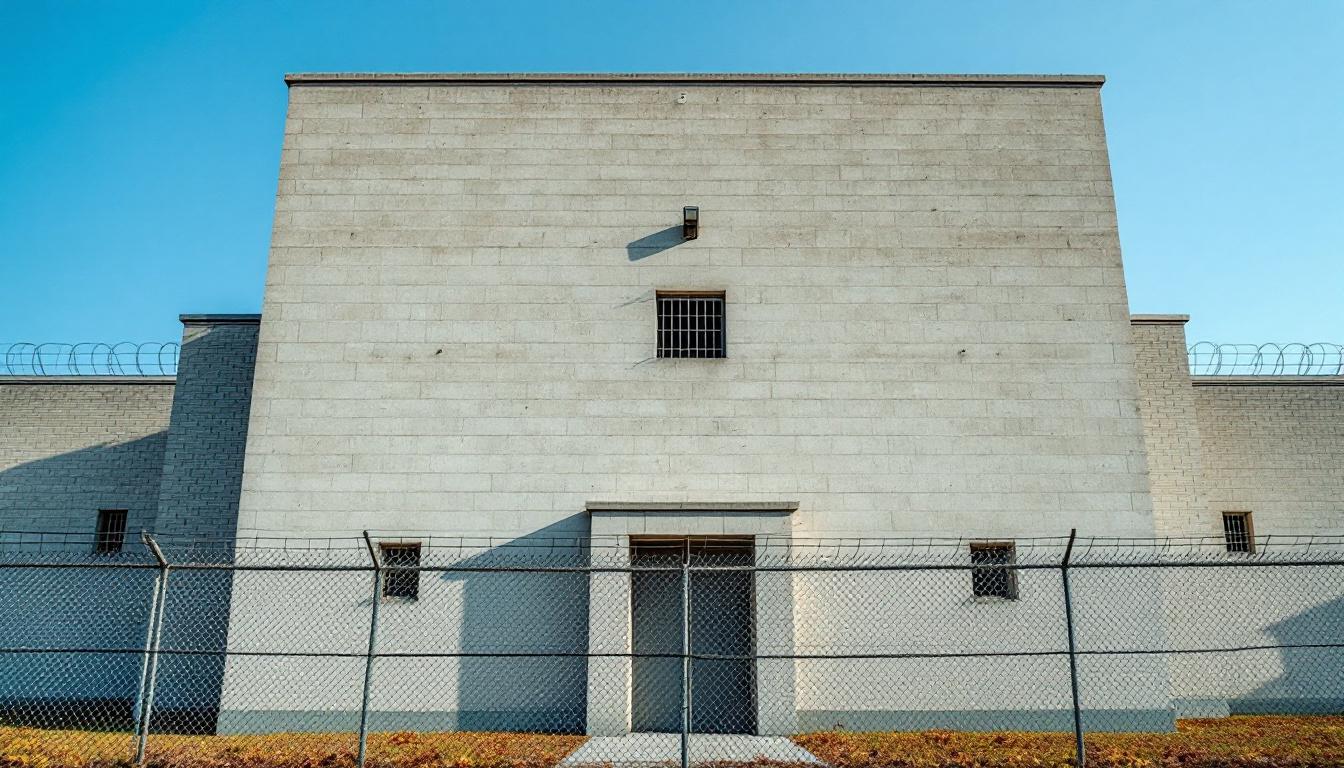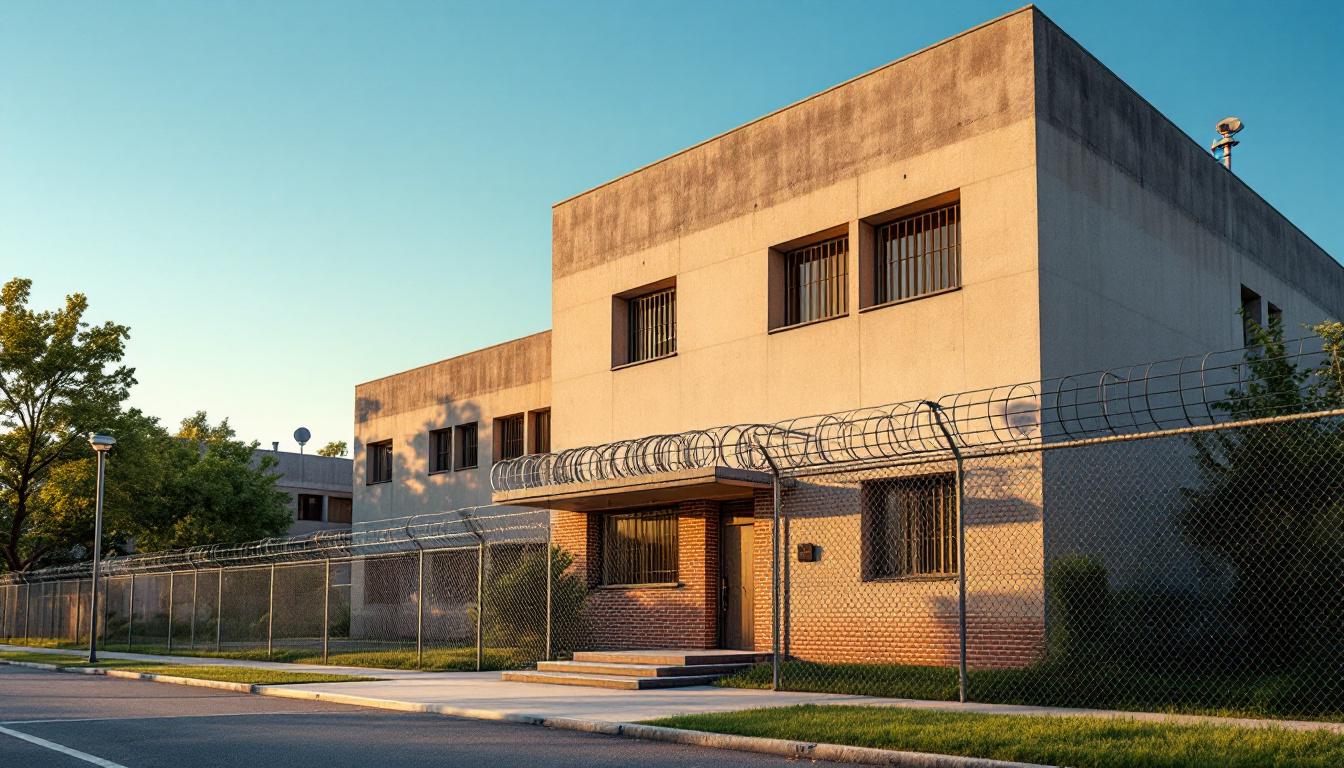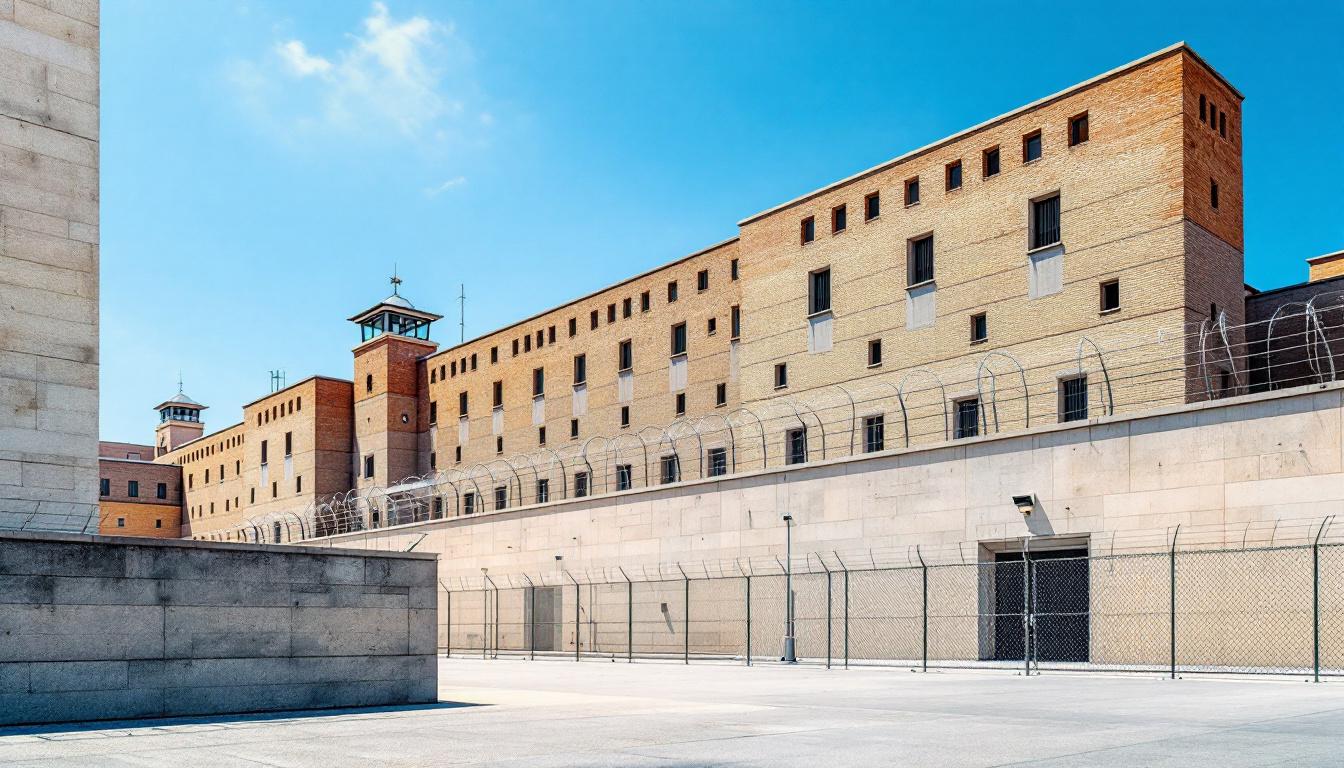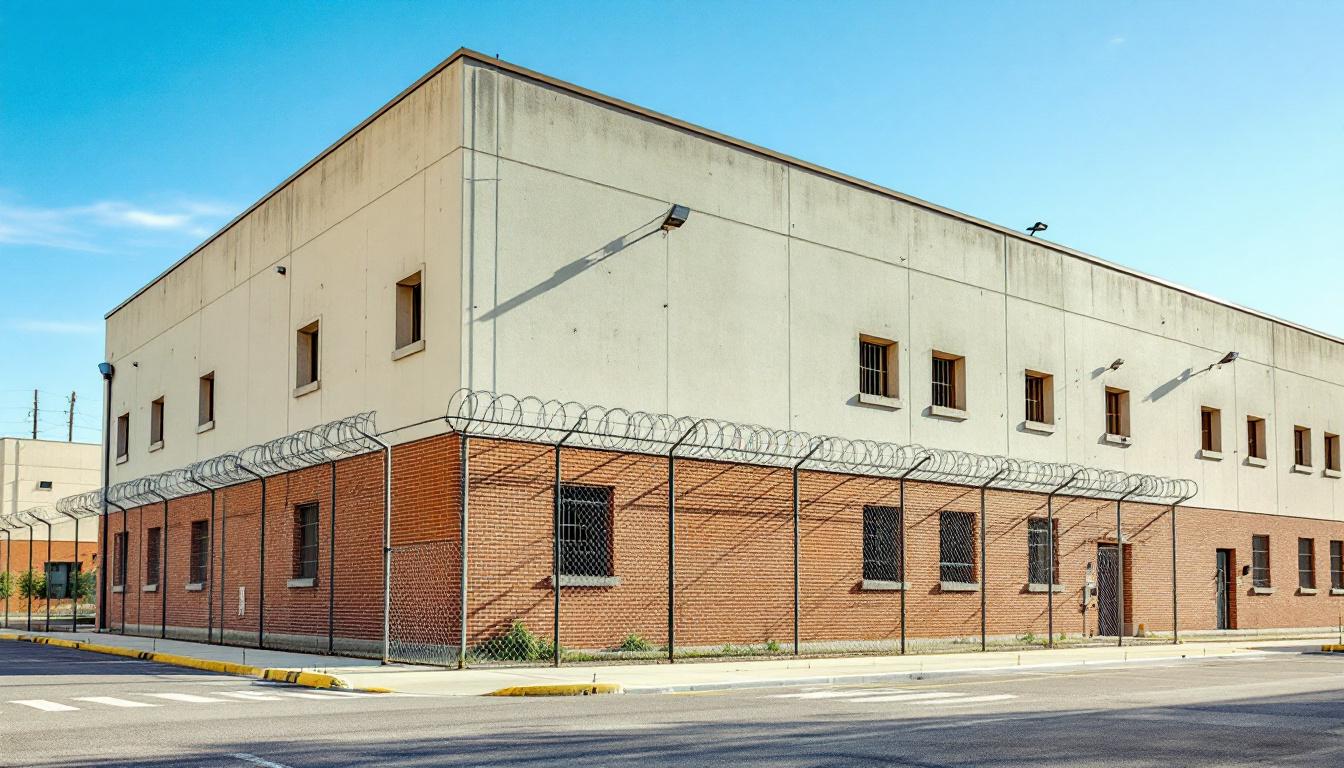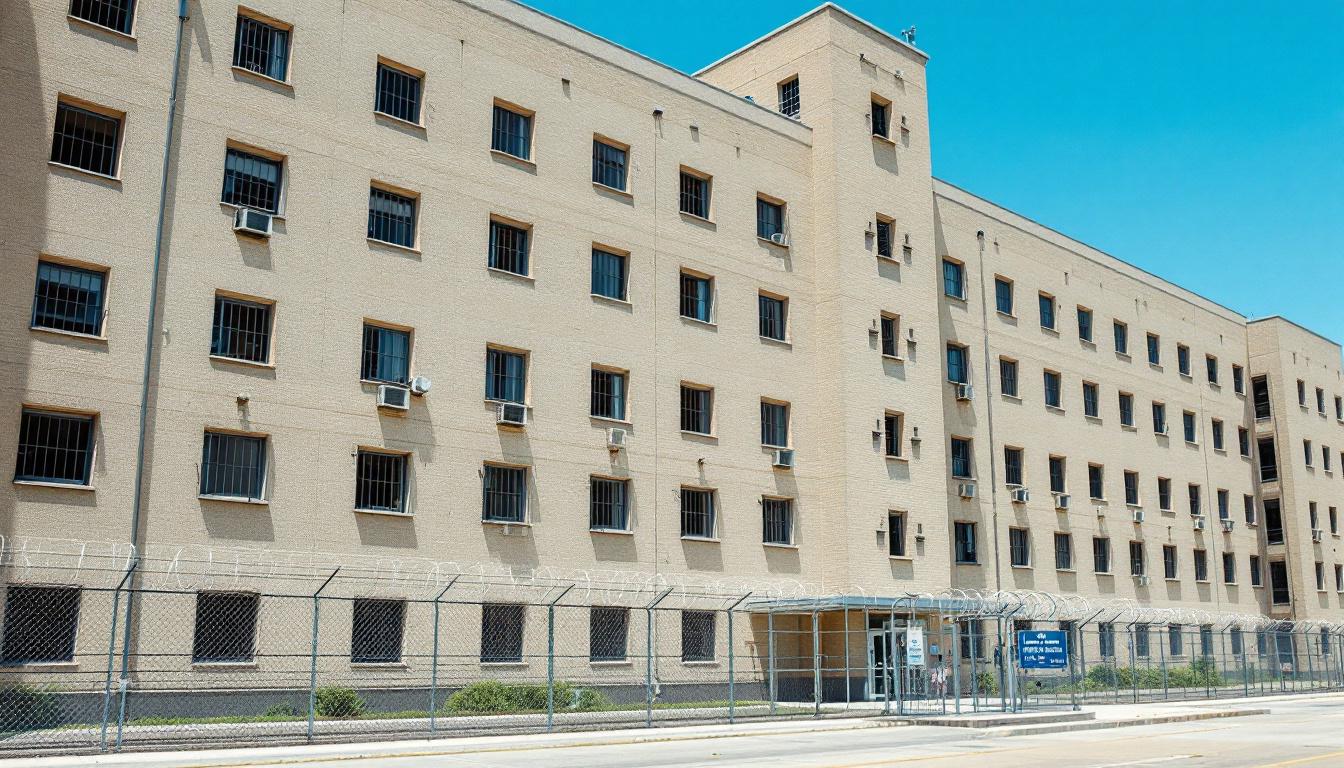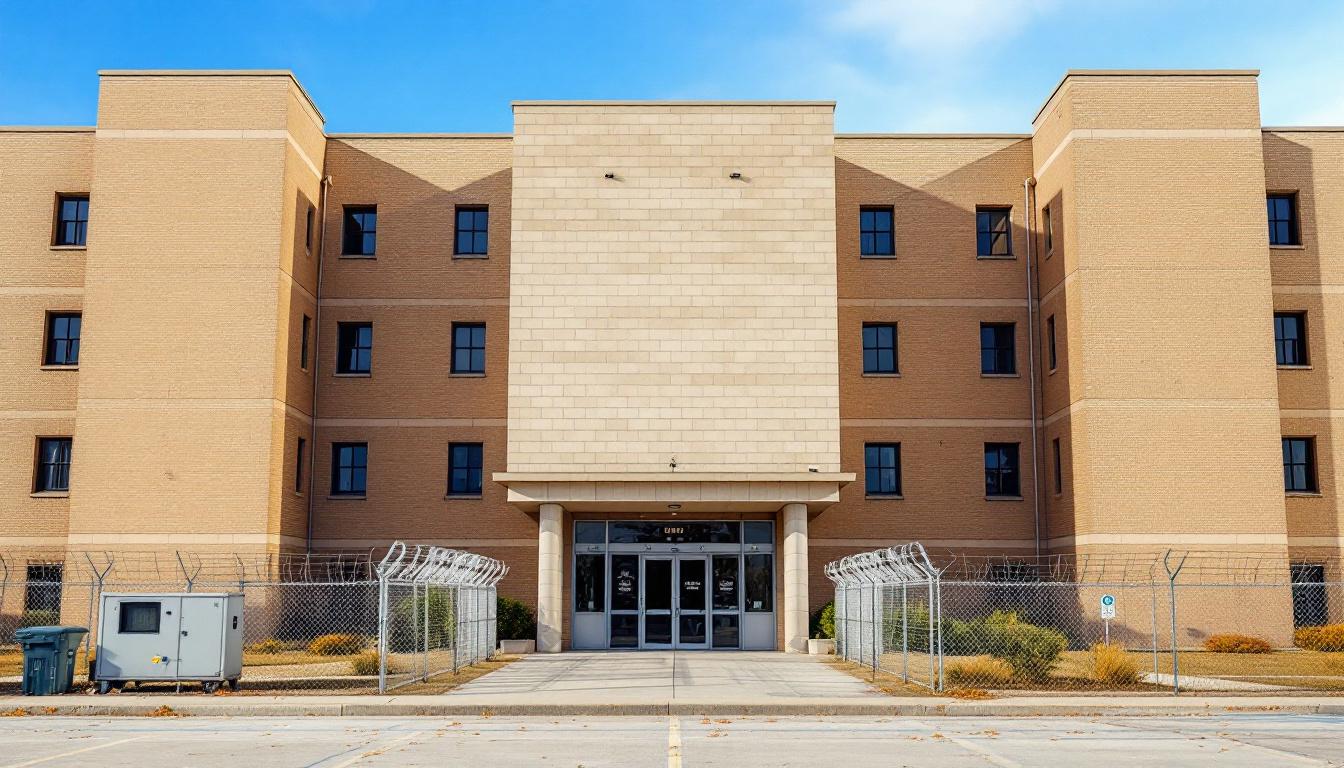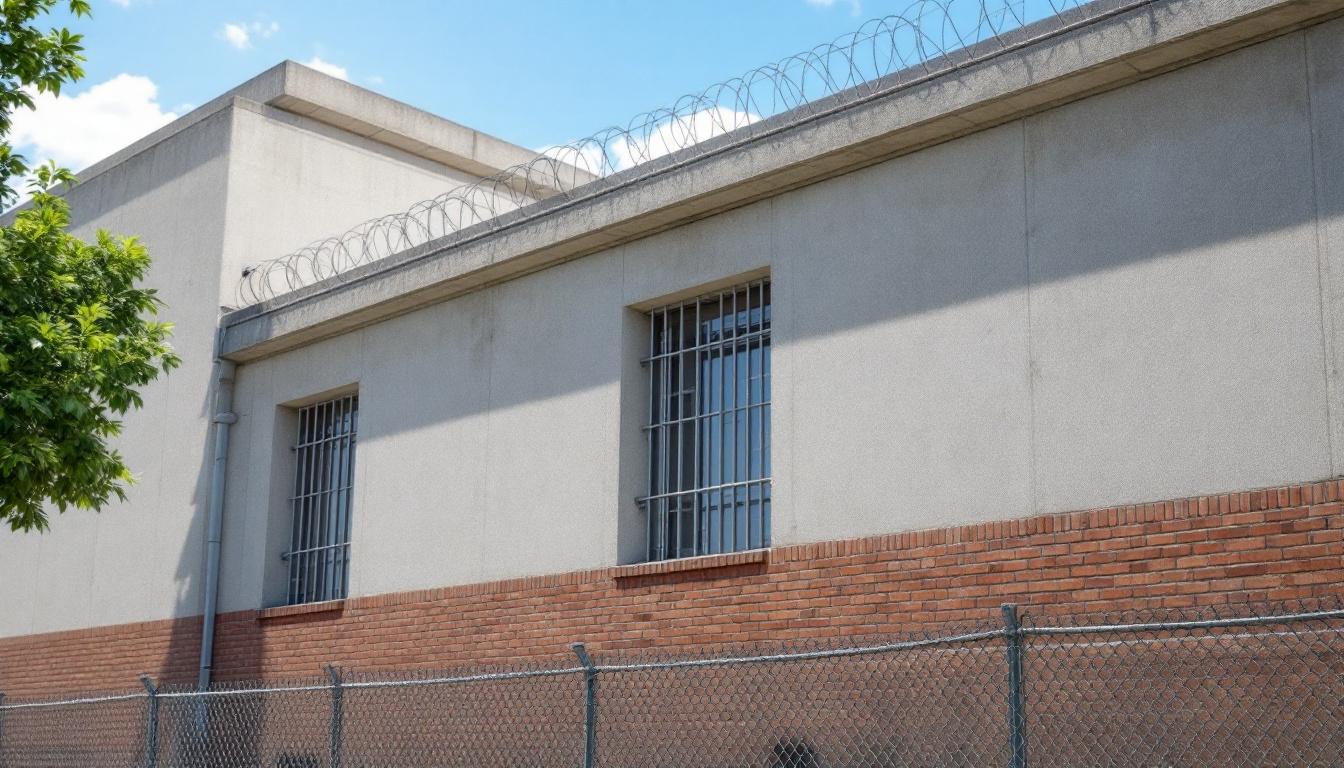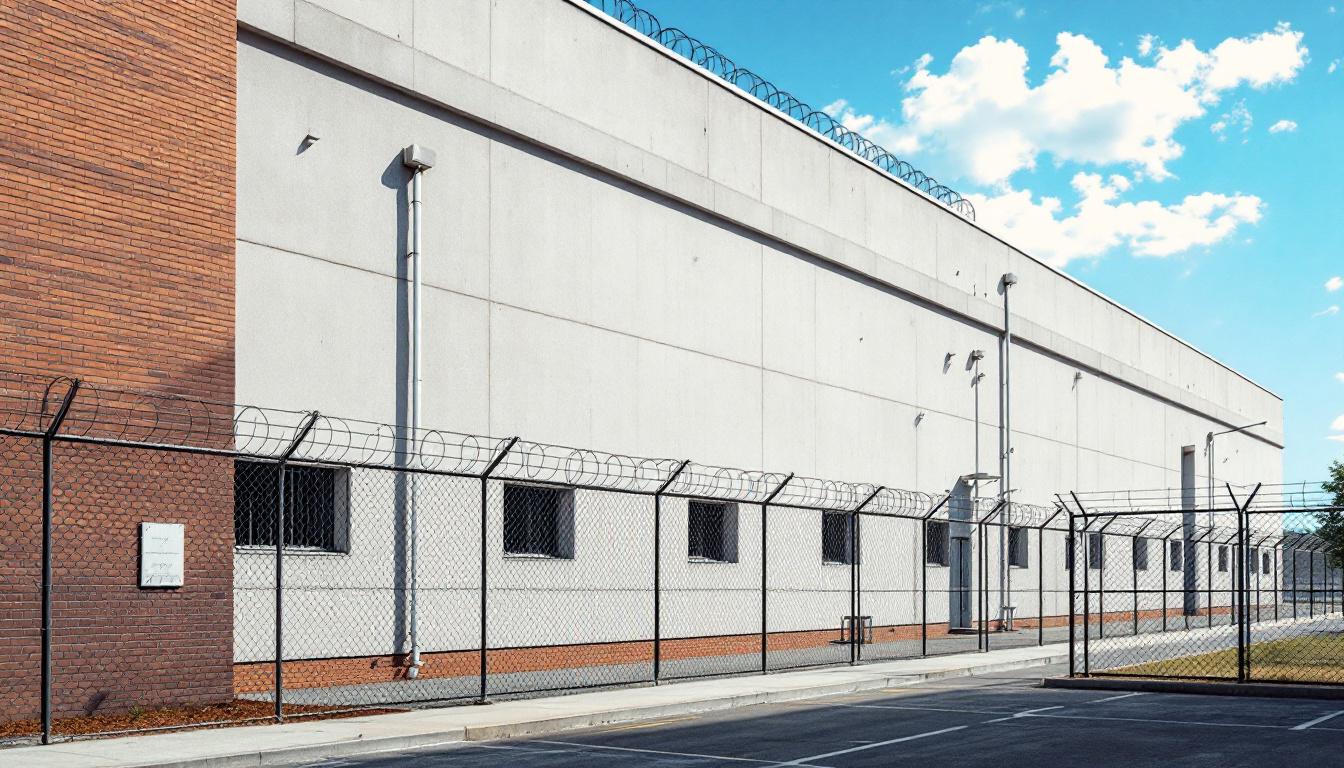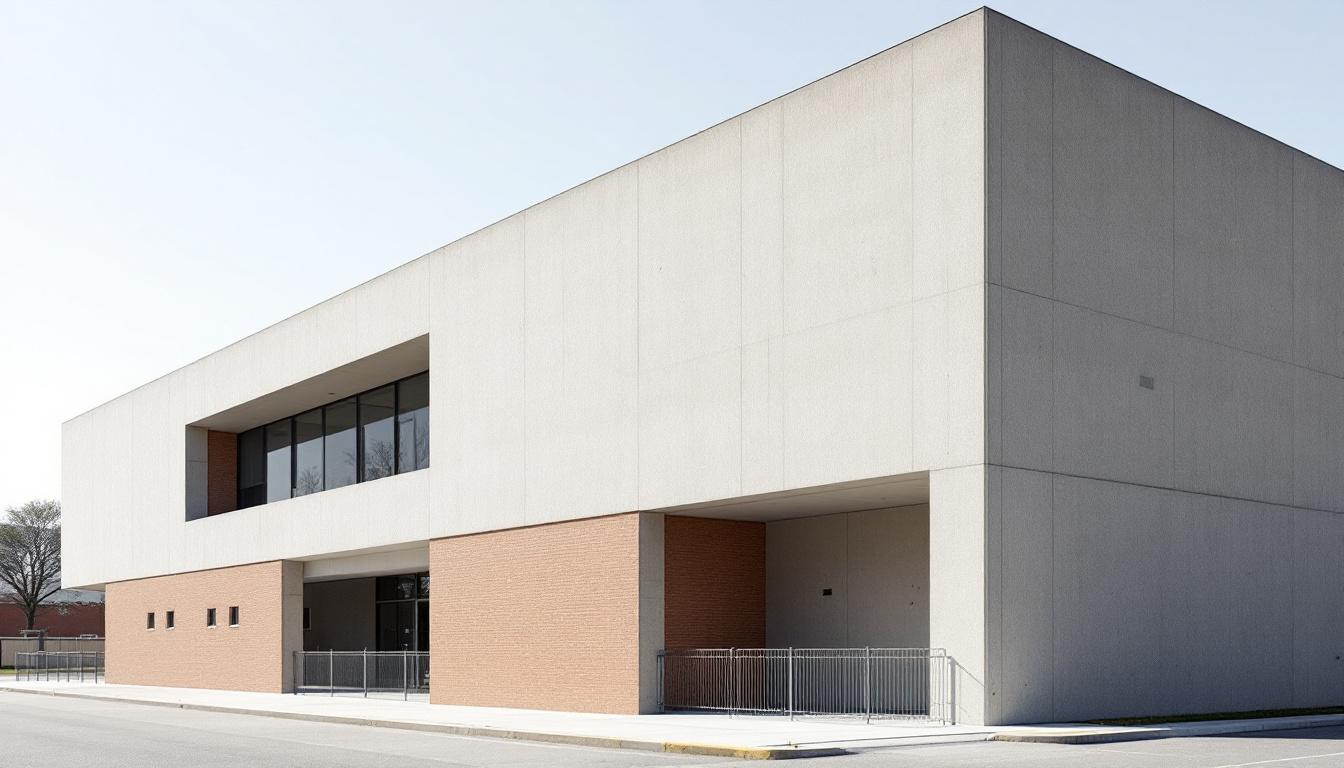
Quick Navigation
How to contact an inmate at Delta Conservation Camp #8
This comprehensive guide will walk you through how to connect with an inmate at Delta Conservation Camp #8. Follow the steps below to find an inmate and send letters and photos:
- Search for the inmate using our search tool below
- Create your account or log in to Penmate
- Write your message (up to 6,000 characters)
- Send instantly - inmates receive printed copies daily
Find an Inmate
Search for an inmate to start communicating today
Tip: You can search by first name, last name, or inmate ID number
To contact a person at Delta Conservation Camp #8 start by searching for the person on the official facility website. Perform a search by following these steps:
- Step 1: Enter their first name and last name into the search form and click "Search"
- Step 2: Locate their inmate record
- Step 3: Write down their Inmate ID and any housing information provided
Important! Be sure to enter the person's full name. Nicknames should not be used.
How to Send Messages to Inmates

You can use your phone or computer to send emails, letters, and photos to an inmate. Messages are sent electronically to inmate tablets or kiosks at the facility. If you would like to send a message, start by searching for an inmate at Delta Conservation Camp #8.
Sending Photos and Postcards

A great way to send love and support to a loved one at Delta Conservation Camp #8 is to send photos and postcards. It only takes a few minutes to send photos from your phone and it makes a huge difference. You can also mail postcards with words of support and inspiration, or design your own postcard for special moments like birthdays and holidays.
Important! Be sure not to send any explicit photos or they may not be approved by the facility. You can also use a photo printing app like Penmate to make sure your photos are printed at the correct size (4x6 or 3x5) and are mailed according to the rules and regulations of Delta Conservation Camp #8.
Frequently asked questions about Delta Conservation Camp #8
-
How long does it take to deliver a message?
If you're sending an email message your letter is usually delivered within 24-48 hours. For messages sent via mail you should expect delivery within 3-7 days. All messages will need be approved by Delta Conservation Camp #8.
-
How much does it cost to send a message to Delta Conservation Camp #8?
You can send a message free using your phone or mail a message via USPS for the price of a $0.60 stamp and envelope. You can also purchase credits or e-stamps from services starting at $1.99.
-
What services can I use to contact an inmate at Delta Conservation Camp #8?
Penmate
You can use Penmate to send letters and photos to an inmate from your phone. It's an easy way to stay in touch during your loved one's incarceration. Use the inmate locator to find an inmate's location and contact information, then you can send messages within a few minutes.
Securus messaging
Securus may be another option for communicating with an inmate at Delta Conservation Camp #8. You can create a friends and family account and purchase credits to send messages. All messages will be reviewed and must be approved by the facility.
JPay
Some county jails and state prisons may support sending messages with JPay. You must register an account with the system, find your loved one, and purchase stamps to send messages. For some locations you can also attach photos.
Smart Jail Mail
You may also check if Smart Jail Mail is available at Delta Conservation Camp #8. Smart Jail Mail is operated by Smart Communications and has contracted with some state and county jails. After purchasing credits, your messages and photos are sent to the facility, printed out, and then handed out to your loved one.
-
What is the mailing address of Delta Conservation Camp #8?
Mailing address:
Delta Conservation Camp #8
6246 Lambie Rd
Suisun City, CA 94585
-
What are the visiting hours at Delta Conservation Camp #8?
Visiting hours at Delta Conservation Camp #8 vary by housing unit and security level. Generally, visits are scheduled on weekends and holidays, with some facilities offering weekday visits. Contact the facility directly for the current visiting schedule. Visits typically last 30-60 minutes and must be scheduled in advance.
-
What items are prohibited when sending mail to Delta Conservation Camp #8?
Prohibited items typically include: cash, personal checks, stamps, stickers, glitter, glue, tape, staples, paperclips, polaroid photos, musical or blank greeting cards, hardcover books, magazines with staples, and any items containing metal or electronics. Only send letters on plain white paper with blue or black ink. Photos must be printed on regular photo paper (no Polaroids). Always check with Delta Conservation Camp #8 for their specific mail policies.
-
How do I send money to an inmate at Delta Conservation Camp #8?
You can send money to an inmate at Delta Conservation Camp #8 through several methods: 1) Online using JPay, Access Corrections, or the facility's approved vendor, 2) Money orders mailed directly to the facility with the inmate's name and ID number, 3) Kiosks located in the facility lobby, or 4) Over the phone using a credit or debit card. Fees vary by method, typically ranging from $2.95 to $11.95 per transaction.
-
Can I schedule a video visit with an inmate at Delta Conservation Camp #8?
Many facilities now offer video visitation as an alternative to in-person visits. At Delta Conservation Camp #8, video visits may be available through services like Penmate, Securus Video Connect, GTL, or ICSolutions. Video visits typically cost $10-20 for 20-30 minutes and must be scheduled in advance. You'll need a computer or smartphone with a camera and reliable internet connection. Contact the facility for their specific video visitation policies and approved vendors.
-
What identification do I need to visit an inmate at Delta Conservation Camp #8?
All visitors must present valid government-issued photo identification such as a driver's license, state ID, passport, or military ID. Minors must be accompanied by a parent or legal guardian who can provide the minor's birth certificate. Some facilities require visitors to be on the inmate's approved visitation list, which may require a background check. Contact Delta Conservation Camp #8 for specific ID requirements and visitor approval procedures.
-
How can I find out an inmate's release date?
To find an inmate's release date at Delta Conservation Camp #8, you can: 1) Use the online inmate search tool if available, 2) Call the facility's records department, 3) Contact the inmate's case manager or counselor, or 4) Have the inmate provide this information during a call or visit. For privacy reasons, some facilities only release this information to immediate family members.
Facility Overview
Contact Information
Delta Conservation Camp #86246 Lambie Rd
Suisun City, CA 94585
Official Website

About Delta Conservation Camp #8
Located in the mountainous terrain of Susanville, California, Antelope Conservation Camp #25 operates as a specialized correctional facility found in Lassen County’s forested landscape. This conservation camp, which opened in February 1963, represents a joint partnership between the California Department of Corrections and Rehabilitation (CDCR) and the California Department of Forestry and Fire Protection (CAL FIRE). The facility’s primary mission centers on providing trained incarcerated hand crews for firefighting operations throughout the Lassen Modoc Ranger Unit and Plumas County areas, while CDCR maintains responsibility for supervision, care, and discipline of participants.
The camp’s operational structure supports both emergency response and community service initiatives. When not engaged in firefighting activities, incarcerated crews typically perform conservation and community service projects as determined by CAL FIRE, including work with Fish & Game public services, Bureau of Land Management fire defense improvements, local government public recreation projects, and Cal Trans public service initiatives. The facility also houses an in-camp CAL FIRE Canvas Shop that produces web gear for firefighters, which may be distributed to crews and staff throughout the state.
Antelope Conservation Camp #25 offers rehabilitative and educational services similar to other CDCR facilities, including substance abuse programs such as Alcoholics/Narcotics Anonymous (AA/NA) and religious programs. These programs work alongside the camp’s vocational training opportunities in firefighting and conservation work, providing participants with practical skills and experience. The facility’s location in Susanville allows access to the natural training environments essential for preparing crews for wildfire suppression and forest management activities throughout Northern California’s diverse terrain.
Programs & Services
At Antelope Conservation Camp #25, rehabilitative programs form the foundation of the incarcerated population’s daily experience, with substance abuse support through Alcoholics/Narcotics Anonymous (AA/NA) meetings and religious programs providing crucial pathways for personal transformation. The facility’s educational services work alongside these rehabilitative offerings to address the diverse needs of residents preparing for successful reintegration into their communities. These programs typically operate within the comprehensive structure of a conservation camp environment, where the demands of firefighting and conservation work create additional opportunities for skill development and personal growth.
The camp’s vocational training extends beyond traditional firefighting preparation to include specialized skills development through the on-site CAL FIRE Canvas Shop, where residents produce web gear for firefighters used throughout California. This hands-on training program may offer valuable manufacturing and craftsmanship skills that can translate to employment opportunities upon release. Educational services likely include basic literacy programs, GED preparation, and continuing education opportunities that support long-term career goals. Mental health and counseling services are typically available to help residents address underlying issues that may have contributed to their incarceration while building coping strategies for life after release.
Community service projects serve as both skill-building opportunities and a means of giving back, with residents participating in conservation work for Fish & Game Public Services, fire defense improvements for the Bureau of Land Management, public recreation projects for local government, and public service initiatives with CalTrans. Support services may include case management, reentry planning assistance, family communication programs, and connections to community resources that help ensure a smooth transition back to civilian life. The combination of structured rehabilitation, practical skill development, and community engagement creates a comprehensive approach to preparing residents for successful reintegration while serving the broader public safety mission.
Daily Life & Visitation
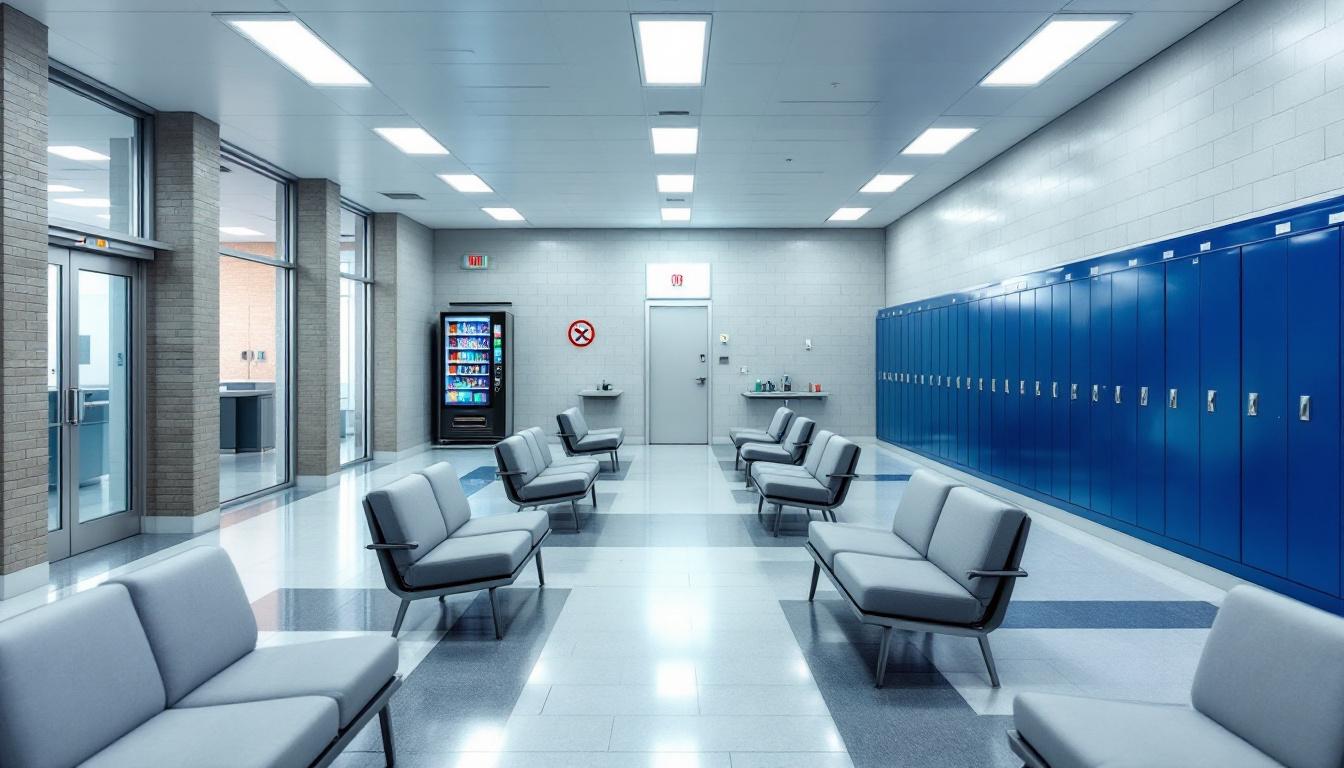
Incarcerated individuals at Antelope Conservation Camp #25 wake to a structured environment where their primary mission centers on providing firefighting support to the Lassen Modoc Ranger Unit and Plumas County areas. The camp operates under joint supervision between CDCR and CAL FIRE, creating a comprehensive daily routine that blends correctional protocols with fire service preparation. When not actively responding to fire emergencies, residents typically engage in conservation projects and community service work determined by CAL FIRE, including fish and game public services, fire defense improvements for the Bureau of Land Management, and public recreation projects for local government agencies.
The camp’s in-facility project involves operating a CAL FIRE Canvas Shop, where residents produce web gear for firefighters that gets distributed to crews and staff throughout California. This work provides valuable vocational training while contributing to the broader firefighting mission. Like other CDCR facilities, Antelope Camp offers rehabilitative and educational services, including substance abuse programs such as Alcoholics/Narcotics Anonymous and religious programs, helping residents prepare for successful reintegration into their communities.
Families seeking to maintain contact with loved ones at Antelope Conservation Camp #25 can reach the facility at (530) 257-2181, ext. 4224. The camp’s location in Susanville provides a more rural setting compared to traditional prison facilities, and the fire camp environment often allows for different visiting arrangements, though specific policies may vary based on operational needs and emergency response requirements. The collaborative nature of the program between CDCR and CAL FIRE creates opportunities for residents to develop job skills and work experience that may prove valuable upon release.
Ready to Connect?
Start communicating with your loved one today
Search for an Inmate
